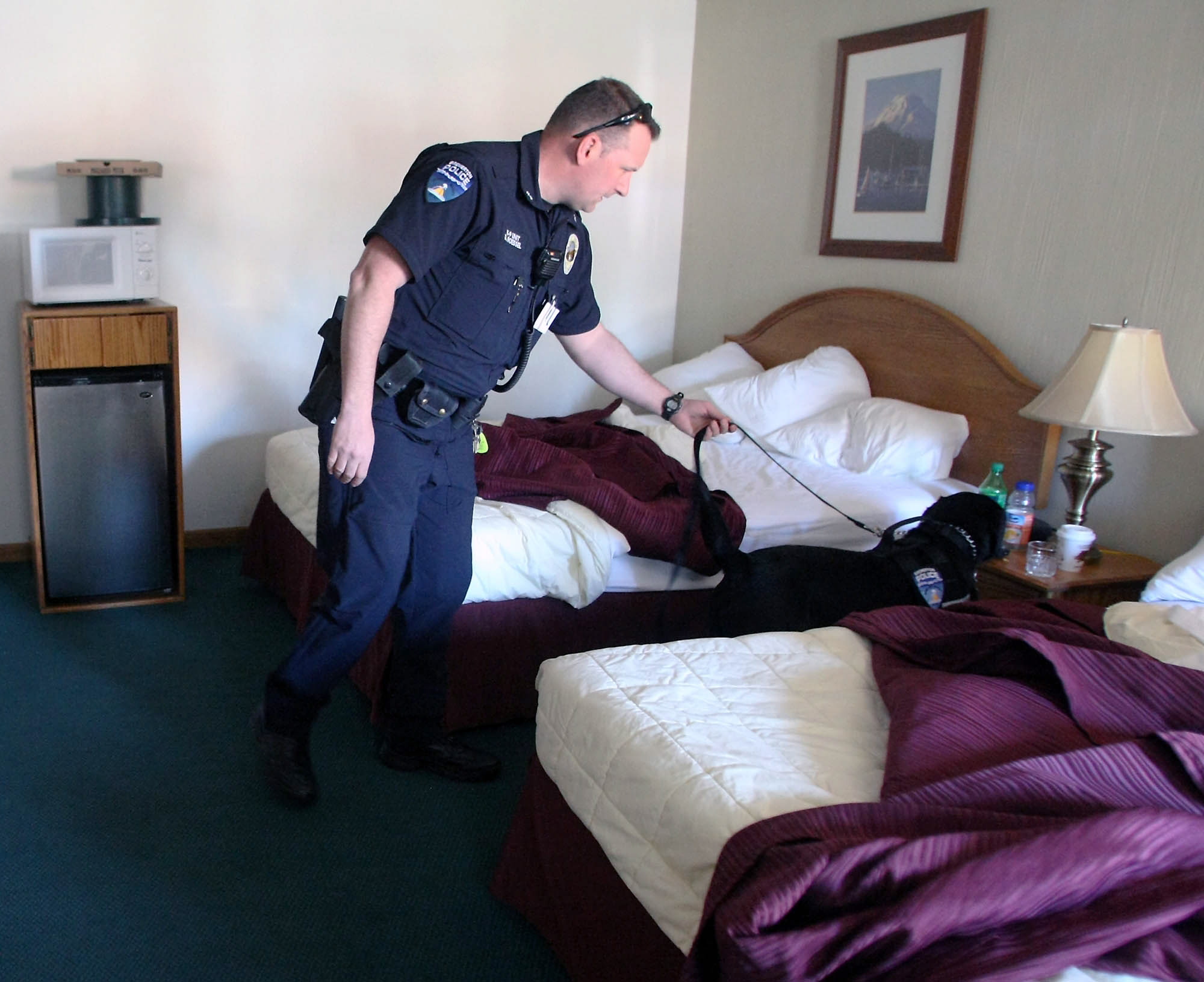BREMERTON — Bremerton Police Officer Dahle “Duke” Roessel and his new dog partner, Dusty, combed the rooms of a West Bremerton hotel during a practice session Tuesday. Dusty, an 18-month-old black Lab, sniffed around for meth, heroin and cocaine that had been planted there.
But not pot.
The Bremerton Police Department, following in the footsteps of many law enforcement agencies around the state, is not training its newest officer how to sniff out marijuana. Months after voters approved an initiative legalizing possession of small amounts of marijuana, Dusty is the first narcotics dog in Kitsap with the distinction.
Dusty was bred at North Bend Retriever Kennel to be a champion birding dog. He was a bit too restless for that job, but his insatiable drive to look for things made him “perfect for what we need,” Roessel said.
Roessel points out that should state law change, it would be easy to bring the dog up to speed on the scent of pot.
“We can train them on marijuana in a weekend,” he said.
Suquamish police also have a new dog, an 18-month-old golden Lab-pit bull mix named Loki who just come out of training with the state’s Department of Corrections. Loki is a post-pot pup, too.
Marijuana laws are different on tribal lands, though Suquamish Police Chief Mike Lasnier said the tribal council is evaluating those laws. Currently, possession of less than seven grams of pot is an infraction similar to a traffic ticket; possession of more than seven grams is a misdemeanor, while having more than 40 grams is a felony, similar to state laws.
Washington State Patrol spokesman Bob Calkins said his agency won’t be training future narcotics detection dogs to find pot, either.
“It’s problematic because the dogs could alert on a legal amount of marijuana,” he said, “And then we’re violating someone’s privacy.”
He said there’s also a concern that if a dog were to find a valuable piece of evidence because his sniffer encountered a legal amount of pot, all the evidence might be thrown out in court. For example, Calkins said, if a dog sniffs out a legal amount of marijuana and a gun used in a murder is found with it, a judge might rule that the gun isn’t admissible in court.
Dogs can be retrained to avoid the scent of pot, but there’s always a chance they could still find the now-legal drug, he added.
Poulsbo police don’t have a dog, but new Chief Al Townsend said he’ll make getting one a priority. That new dog won’t be trained to find pot, either.
“It will just complicate things so much in doing the search and trying to get a warrant,” he said of having a dog trained in marijuana detection. “If things change, you can add the drug (to the dog’s repertoire) but it’s tough to get rid of it.”
Bainbridge Island Police Lt. Phil Hawkins said his department, too, is in between drug dogs. Hawkins said his department’s plan is to get a narcotics dog in the coming months, but he did not yet know if it’d be trained in marijuana detection.
He was willing to add, “I can probably say it will be a lower priority.”
The Kitsap County Sheriff’s Office does not have a narcotics detection dog nor immediate plans to get one, according to sheriff’s spokesman Scott Wilson. Port Orchard’s police dog, Amber, was trained before marijuana legalization.



